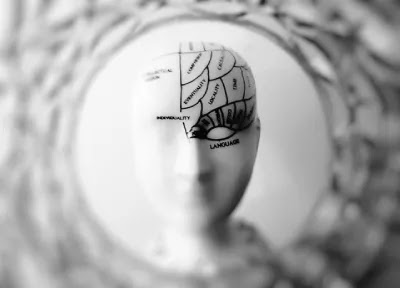Lots of people enjoy drinking soda and other sugary drinks, but there are a lot of potential health risks associated with these beverages. This article will talk about 11 health risks associated with soda and sugary drinks that you may not know about.
Soda is one of the most popular drinks worldwide. Over 100 countries consume soda, which makes it a multi-billion dollar industry. The United States is the world's largest carbonated soft drink market and represents approximately 24% of the global market share. There are no health benefits of soda and its consumption has been linked to several types of cancer, cardiovascular disease, diabetes, oesophagal cancer, and tooth decay.
The world has consumed soda for over one hundred years; it has become an integral part of American culture. Over sixty per cent of Americans consume at least one soda a day; twenty per cent consume more than four cans daily. According to numbers provided by the Centers for Disease Control and Prevention (CDC) in 2006, approximately seventy-two per cent of U.S teens between the age of twelve and seventeen consumed either soda or sugary drinks on any given day in 2005.
11 Health Risks Associated With Soda And Other Sugary Drinks
Now, let's considered some of the health risks associated with soda and sugary drinks.
1. Soda and Sugary Drinks Are a Major Contributor to The Obesity Epidemic
Soda is delicious and bad for you. The sugar and artificial sweeteners in soda have been linked to weight gain and diabetes, and soda consumption has been shown to increase the risk of stroke, heart disease, and some cancers.
Drinking sugary drinks regularly can lead to weight gain. Over the past few decades, people's weight has increased dramatically — and so has our intake of sugary drinks. People who drink more sugary beverages are more likely to be overweight or obese than those who don't drink these drinks often, according to a 2014 study published in BMC Public Health. The researchers found that people who drank one more serving of sugary beverages per day were 27 per cent more likely to be overweight than those who didn't consume any sugary drinks at all. People who drank two or more servings were 51 per cent more likely to be obese than their counterparts who didn't drink sugary beverages at all. The American Heart Association recommends limiting your added sugar intake from all sources (including naturally occurring sugar) to no more than half of your daily discretionary calories allowance — about 100 calories for women and 150 calories for men — which translates into about 6 teaspoons.
Related Topic: Beyond Body: The Best Personalised Wellness and Weight Loss Book
2. Soda and Sugary Drinks Increase the Risk of Type 2 Diabetes
Sugar-sweetened beverages, such as soda and fruit drinks, have no nutritional value and provide excess calories. They are linked to weight gain, and they have been shown to increase the risk of type 2 diabetes and heart disease in adults.
Drinking one sugary beverage a day is associated with a 26% greater risk of developing type 2 diabetes compared to people who drink less than one serving per month (1).
3. They Lead to Fatty Liver Disease
Fatty liver disease is the accumulation of fat in the liver and is linked to obesity, type 2 diabetes, and other health problems.
Sugary drinks are probably the number one source of excess calories in the world. They are also the most common cause of fatty liver disease.
The American Liver Foundation estimates that as many as 25 per cent of people in the United States have nonalcoholic fatty liver disease (NAFLD), which can progress to more serious conditions such as cirrhosis or liver cancer. These numbers are likely even higher for Hispanics and African Americans, who are at greater risk for NAFLD than Caucasians.
The foods you eat have a direct impact on your liver health, which is why it is important to closely examine your diet and make changes if necessary. The following foods can help protect your liver from damage:
Fatty fishes: Fatty fishes such as salmon, tuna, and mackerel contain omega-3 fatty acids that protect against oxidative stress on the liver by preventing free radical formation. They also lower levels of triglycerides and cholesterol while increasing HDL (good) cholesterol levels in the body. Omega-3 fatty acids found in fish can also help protect against nonalcoholic steatohepatitis (NASH), a type of hepatitis caused by inflammation due to fat deposits within the liver cells that disrupts the normal function of the liver.
4. Sugary drinks And Soda Cause Insulin Resistance And Metabolic Problems
Sugar in soda causes insulin resistance. Drinking sugar-sweetened beverages spike your blood sugar and insulin levels because they're digested quickly and enter your bloodstream as glucose (sugar). But then those elevated blood sugars trigger an insulin response by your pancreas to bring them back down again — and over time, this process can cause insulin resistance, which is linked with type 2 diabetes, heart disease, and high blood pressure.
The study, published in the journal Diabetes Care, looked at the effects of sugary drinks on the body’s ability to respond to insulin — a hormone that helps regulate blood sugar levels by storing excess glucose as glycogen in muscles and liver. Insulin resistance occurs when the body does not respond normally to insulin. It causes blood glucose levels to rise higher than normal and makes it difficult for cells to take up glucose from the bloodstream. As a result, glucose builds up in the bloodstream instead of being used as fuel by muscle cells and other organs.
5. Sugary Drinks And Soda Could Be The Reason You Have High Blood Pressure or Hypertension
High blood pressure, or hypertension, is a risk factor for heart disease and stroke. Although it's common in adults over the age of 65, it's also been shown to affect children as young as 5 years old.
High blood pressure is defined as having a systolic (the top number) reading of 140 mm Hg or greater, or a diastolic (bottom number) reading of 90 mm Hg or greater.
A study from the University of Utah found that people who drink sugary beverages are more likely to have high blood pressure.
The study looked at data from more than 200,000 people across the country and included information about their drinking habits and other lifestyle factors. It found a correlation between sugary drinks and high blood pressure, but it did not prove that consuming sugary drinks directly causes high blood pressure.
High blood pressure is the leading cause of death in the world today. The World Health Organization estimates that 1 billion people have hypertension, which can lead to heart disease, stroke, and kidney failure. According to the National Heart Lung and Blood Institute, high blood pressure affects 1 in 3 adults.
Related: 13 Science-Based Health Benefits of Bananas
6. Drinking Soda Can Lead to Kidney Stones
Kidney stones are small, hard mineral deposits that form in the kidneys and urinary tract. They're usually made of calcium oxalate or phosphate, but they can also be made of uric acid or cystine. Some stones contain more than one type of mineral.
If you are a regular drinker of soda, you might want to think twice about it. It's not just the sugar that is bad for your health, but also the phosphoric acid in soda which can cause kidney stones. The kidneys filter out excess calcium and other minerals from our blood. If too much calcium builds up in the kidneys, it may form crystals which can lead to kidney stones.
Sugar contributes to the formation of kidney stones because it increases the amount of calcium in your urine. This extra calcium combines with other substances in your urine to form crystals that eventually become stones. These crystals may come from certain foods or drinks that contain a lot of sugar (like soda).
Here are some tips on how to prevent or treat kidney stones:
a. Drink plenty of water - Water helps flush out excess minerals from our body and keeps our bodies hydrated.
b. Eat more fruits and vegetables - Fruits and vegetables contain lots of vitamins and nutrients that help regulate our metabolism and keep our bodies healthy.
c. Exercise regularly - Regular exercise helps improve circulation and reduce stress which may help prevent kidney stones from forming in the future.
7. Sugary Drinks Can Cause Tooth Decay And Cavities
Here's what you need to know about the link between sugary drinks and tooth decay:
Sugar in drinks is a sticky substance that stays on your teeth for a long time. Drinking one sugary drink every day will increase your risk of developing cavities by 80 per cent compared with people who don't eat or drink anything sweet at all, according to the American Dental Association (ADA).
Sugary drinks can cause tooth decay and cavities. Sugary drinks are bad for your teeth because they contain sugar that the bacteria in your mouth feed on to produce acid. This acid can damage the enamel on your teeth and cause cavities.
Sugar-free versions of sugary drinks are just as bad for your teeth as their full-sugar counterparts. Most sugar-free drinks contain sweeteners such as aspartame (Equal) or sucralose (Splenda). These fake sugars can also hurt your teeth by causing tooth decay, erosion, and sensitivity.
Even though you might use a straw when you drink sugary beverages, the liquid still has time to sit on your teeth before you swallow it down — so even sucking through a straw won't protect your teeth from the harmful effects of sugar!
You Can Also Read: Diet Plans: The Best Guidelines for Diet Plans and Recipes
8. Drinking Sugary Beverages Can Affect Your Memory
A new study has found that consuming too much of the sweet stuff can impair your brain function, specifically episodic memory.
The researchers used functional magnetic resonance imaging (fMRI) to scan the brains of healthy participants as they completed a word-recall test in which they were shown a list of 15 words and then asked to recall as many as possible.
They found that those who drank fizzy drinks had less activity in their hippocampus - an area of the brain associated with storing memories - than those who drank water or diet drinks.
They also found that people who drank more than one sugary drink per day had lower levels of activity in their hippocampus than those who did not consume any at all.
"Our results suggest that consumption of sugary drinks is associated with poorer memory performance," said lead author Dr Maryam Farvid, assistant professor at Harvard T H Chan School Of Public Health in Boston, US. "This study provides evidence that drinking soda or other sweetened beverages may be associated with adverse effects on brain health."
9. Drinking Sugary Beverages And Soda Could Up Your Gout Risk
Gout is a form of arthritis that causes sudden, severe attacks of pain and swelling in the joints.
Gout is caused by crystals of a substance called uric acid building up in the joints. These crystals can form when the level of uric acid in the blood is too high.
The condition is most common in men aged 40 or older, but women can also get it. If you have a family history of gout, you're more likely to develop it yourself.
It's not clear why some people are more susceptible to gout than others, but it may be due to several factors including:
Your diet – Certain foods can increase your risk of developing gout by increasing your blood levels of uric acid
How much alcohol and Sugary drinks do you take – Drinking too much alcohol can make you dehydrated, which can increase your risk of developing gout
10. Sugary Drinks Are Associated With Cancer, Particularly Colorectal Cancer
A new study has found a link between sugary drinks and cancer. The study, published in the Journal of the National Cancer Institute, found that drinking sugary beverages was associated with an 18% higher risk of colorectal cancer.
The researchers used data from over half a million people who had participated in three large studies: the Nurses' Health Study, which had followed more than 122,000 women since 1976; the Nurses' Health Study 2 (NHS2), which followed over 101,000 women since 1989; and the Health Professionals Follow-Up Study (HPFS), which had tracked over 51,000 men since 1986.
The researchers looked at participants' consumption of sugary beverages over two decades and compared it to their incidence of colorectal cancer later on. They found that those who drank one 12 oz serving per day were 18% more likely to get colorectal cancer than those who never drank soda or other sweetened beverages. Those who drank two servings per day were 48% more likely to develop colorectal cancer than those who never drank soda or other sweetened beverages.
11. Sugary Drinks Are Associated With Early Puberty In Girls
A new study published in the journal Pediatrics found that consuming sugary drinks (including fruit juice) is associated with early puberty in girls. This could be due to the high levels of sugar and/or acidity in these drinks, which have been linked to lower bone density and decreased bone mineral content.
The study included nearly 5,000 girls ages 9 to 15 from across Europe. Researchers looked at the girls' diets and whether or not they drank any sugary beverages. They then compared the girls' BMIs, height, and weight measurements with their stage of puberty (breast development, hair growth, etc.).
Girls who drank more than 1 serving of sugary beverages per day were twice as likely to have started puberty early compared to those who did not consume any sugary drinks at all. Early puberty was defined as starting breast development before age 8 or having periods before age 12. The results remained even after excluding those who were overweight or obese.
Also Read: How To Work Out And Stay Healthy: 11 Tips For Beginners
Wrapping Up
The bottom line is that drinking soda and other sugary drinks regularly are associated with a lot of potential health risks, especially for those with a predisposition toward diabetes, heart disease, or – if you're like the 10-year-old girl in this particular case – bone cancer. For these reasons and more, consuming soft drinks regularly should be avoided at all costs. It's never too late to improve your eating habits, but it's also never too early. Make your health a priority as soon as possible.
While the statistics and information listed above may be alarming, it's important to remember that it serves to help you on your way to a healthier lifestyle. Moderation is all-important; once you start drinking soda, there isn't a stopping point until you drink so much that your health is deterred by the lack of self-control and moderation.
We hope that you'll take a moment to think twice before downing another soft drink. And if you're currently hooked on soda, it might be time to put it down and switch over to a healthier alternative. There are plenty of ways to give your taste buds a break while still getting the caffeine your body craves. So go ahead—return to your healthy habits, and watch as your energy levels return and your body feels better each day!
RELATED POSTS












.webp)






.webp)
